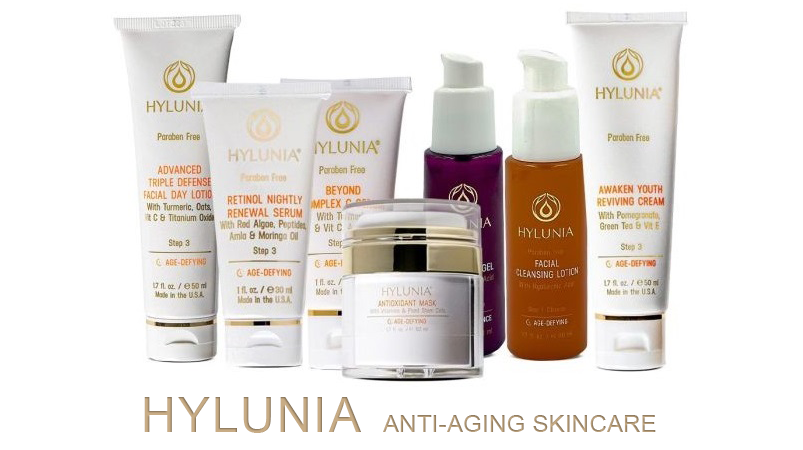
Mature skin has its own set of needs—fine lines, loss of elasticity, and dryness are just a few of the signs that our skin is changing. A good serum can help address these concerns and bring a little extra glow back. But with so many serums out there, how do you choose the right one? Here’s a guide to picking the best serum formulas for mature skin so you can feel confident in your skincare choices.
Contents
- Understanding What Makes Serums Unique
- Top Ingredients to Look for in Serums for Mature Skin
- Choosing the Right Serum for Your Specific Needs
- Layering Serums: Can You Use More Than One?
- Tips for Getting the Most Out of Your Serum
- Common Mistakes to Avoid When Using Serums
- Finding the Perfect Serum Takes a Little Experimenting
Understanding What Makes Serums Unique
Serums are like concentrated boosters for your skin. They’re packed with active ingredients designed to target specific issues, and their lightweight formulas allow them to penetrate deeply. Unlike moisturizers, which create a barrier to lock in moisture, serums go right to the source of common skin concerns, delivering hydration, firmness, and brightening effects directly where they’re needed.
Why Serums Work Well for Mature Skin
Mature skin often requires a bit more help to stay firm and hydrated. Serums provide a direct line to powerful ingredients that can support collagen production, reduce pigmentation, and improve texture. By choosing a serum specifically formulated for mature skin, you’re giving your skin targeted care without unnecessary fillers.
When to Apply Serums in Your Routine
Apply serums after cleansing and before your moisturizer. This sequence ensures that the active ingredients absorb effectively. Most serums are applied in the morning or evening, depending on their formulation and your skin’s needs. Some, like vitamin C, are ideal for daytime protection, while others, like retinol, work best at night.
Top Ingredients to Look for in Serums for Mature Skin
Not all serums are created equal, and the right ingredients make all the difference. Here are the top ingredients dermatologists recommend for mature skin, each with its own set of benefits.
Hyaluronic Acid for Deep Hydration
Hyaluronic acid is a moisture magnet. It can hold up to 1,000 times its weight in water, which makes it ideal for mature skin that tends to be drier. This ingredient pulls moisture into the skin, plumping it up and making fine lines less noticeable. If your skin is feeling thirsty, a hyaluronic acid serum is like a big glass of water for your face.
Retinol for Smoother Skin Texture
Retinol is the holy grail for aging skin. This vitamin A derivative speeds up cell turnover, helping to reduce fine lines and improve skin texture. While retinol can be potent, it’s one of the most effective ingredients for tackling wrinkles and evening out skin tone. Start with a lower concentration if you’re new to retinol and gradually build up to avoid irritation.
Vitamin C for Brightening and Firming
Vitamin C is a powerful antioxidant that protects skin from free radicals, which can cause premature aging. It’s also known for its brightening properties and can help fade dark spots, giving your skin a more even tone. Look for serums with stable forms of vitamin C, like L-ascorbic acid, for maximum effectiveness.
Choosing the Right Serum for Your Specific Needs
Everyone’s skin is different, so it’s essential to choose a serum that addresses your particular concerns. Here’s a breakdown of common issues and the serums that work best for each.
For Fine Lines and Wrinkles
If fine lines are your primary concern, look for a serum that includes retinol, peptides, or bakuchiol. Peptides are small amino acid chains that help support collagen, while bakuchiol is a plant-based alternative to retinol, making it a gentler option for sensitive skin.
For Dry, Dehydrated Skin
For skin that feels tight or flaky, hydration is key. Serums with hyaluronic acid, glycerin, or panthenol (vitamin B5) provide a hydration boost that helps keep skin soft and supple. Apply a hydrating serum before your moisturizer to lock in moisture throughout the day or night.
For Uneven Skin Tone or Dark Spots
If pigmentation or dark spots are an issue, a serum with vitamin C, niacinamide, or licorice root extract can help. These ingredients brighten and even out the complexion, giving your skin a youthful glow. Vitamin C serums are especially popular for brightening, but be sure to pair them with sunscreen, as they can increase sensitivity to sunlight.
Layering Serums: Can You Use More Than One?
Sometimes, one serum just isn’t enough, and that’s okay. Layering serums can be a great way to tackle multiple skin concerns at once. Here’s how to layer serums safely and effectively.
The Order of Application
When layering serums, apply the thinnest, water-based serum first, followed by thicker, oil-based serums. For example, if you’re using a vitamin C serum (usually water-based) and a hyaluronic acid serum (slightly thicker), apply the vitamin C serum first. This layering method allows each product to absorb effectively without interfering with the other.
Limit to Two or Three Serums
While it may be tempting to layer on several serums, dermatologists recommend sticking to two or three at most. Too many layers can overload your skin and make it harder for products to absorb. Focus on serums that address your top skin concerns for the best results.
Tips for Getting the Most Out of Your Serum
Using the right serum is important, but how you use it can make a big difference. Here are some dermatologist-backed tips for getting the most out of your serums.
- Apply to Damp Skin: Applying serum to slightly damp skin can help boost absorption. After cleansing, leave your skin slightly moist before applying your serum to lock in extra hydration.
- Use Sunscreen with Daytime Serums: Ingredients like vitamin C work best when paired with sunscreen. This combo helps protect your skin from UV damage while enhancing the serum’s effectiveness.
Be Consistent
Consistency is key with any skincare product. Serums take time to show results, so stick with your routine for at least a few weeks. Apply them daily (or as directed) and give them time to work their magic before expecting dramatic changes.
Common Mistakes to Avoid When Using Serums
Even with the best products, a few common mistakes can prevent you from seeing results. Here’s what to avoid when using serums for mature skin.
Using Too Much Product
A little serum goes a long way. Typically, you only need a few drops for your entire face. Using too much product can lead to wasted serum and may even cause irritation. A pea-sized amount is usually sufficient, and you can add more only if necessary.
Skipping the Patch Test with New Serums
Introducing new ingredients to your skin can sometimes cause irritation, especially with potent formulas like retinol. Always patch test a new serum on a small area of skin, like your inner wrist, before applying it to your face. This step is especially important if you have sensitive skin.
Finding the Perfect Serum Takes a Little Experimenting
Choosing the right serum for mature skin is a personal journey. It’s okay to experiment a bit to find what works best for you. Remember that everyone’s skin is unique, and what works wonders for one person may not be the best choice for another. Give yourself time to explore different formulas, and don’t hesitate to switch things up as your skin’s needs change.
With the right serum—and a little patience—you can enjoy smoother, firmer, and more radiant skin. Serums for mature skin are designed to support your skin’s health, so take a moment to find the formula that makes your skin feel its best.

